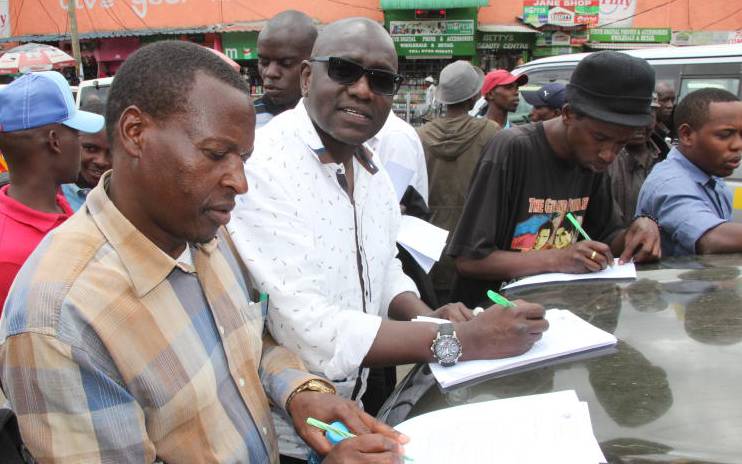×
The Standard e-Paper
Kenya’s Boldest Voice

Third way Alliance party leader Dr Ekuru Aukot (in glasses) collect signatures from members of public at the at Nakuru main bus terminus on October 25, 2018 during his 'Punguza mizigo' referendum campaign initiative that propose to amend the constitution. [Kipsang Joseph/Standard]
Proponents of a populist initiative to amend the Constitution have claimed it has met the threshold to require submission of the draft Bill to county assemblies.